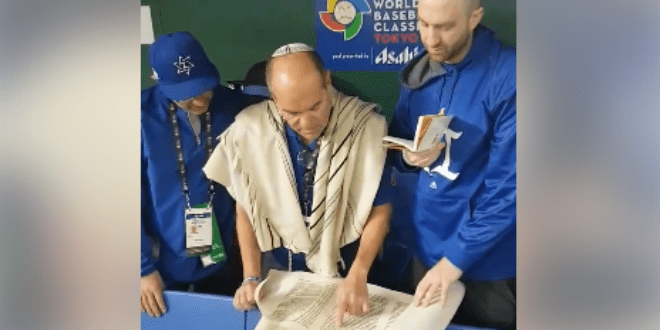The Jewish Sages teach that once Moshiach (Messiah) arrives, none of the Biblical festivals will be celebrated any longer except for Purim.
“The holiday of Purim will never be abolished,” writes the eminent 12th century sage known as the Rambam. “Even at the End of Days, when all commemorations of our travails will not apply, the Book of Esther will be like the Five Books of Moses and last for all eternity.”
In the simplest terms, Biblical holidays mark historic events such as Passover with the Exodus from Egypt and Shavuot (Feast of Weeks) with the giving of the Torah. But this is only a very limited way to understand the holidays.
“Every holiday is not just a commemoration of an event that once occurred,” prolific scholar and End Times expert, Rabbi Pinchas Winston told Breaking Israel News. “It represents an opening of a portal to a spiritual light that isn’t available on a daily basis and that empowers us to accomplish great spiritual things. The light we access on holidays actually belongs to a future period of time.”
Rabbi Winston further explained that once Moshiach comes, “the light that we can now only experience on the holidays will become more readily available, on a daily basis, with each new period of history.”
According to Rabbi Winston, the light of Purim is the holiest of all the holidays. “Purim really is the holiest day of the year,” he explained. “The light of Purim corresponds to one of the highest levels in the spiritual world and its light will continue to shine all through the days of Moshiach, all through the period of techiyat haMetim (the revival of the dead) and for thousands of years beyond that.”
A related explanation for why Purim deserves to be celebrated, even after the rest of the Biblical festivals are nullified, is connected to the two ways of perceiving God.
One way of perceiving God is linked to the Passover story of the Exodus, the giving of the Torah on Shavuot and the protection of the Children of Israel while they wandered in the desert, which is commemorated on Sukkot (Feast of Tabernacles). In each of these cases, God performed overt miracles, showed His command of nature and openly played His Hand.
However, during the story that unfolds in the Book of Esther, God’s overt Hand is hidden. Instances in human history when God conceals Himself are referred to in Hebrew as haster asteer, meaning, “I will surely hide and conceal.” Recognizing God when His power is not on full and obvious display, is an advanced spiritual skill.
How can these two explanations be tied together? When Moshiach brings his spiritual light into the world, we will no longer need the light from the Biblical festivals to guide us in seeing Who is really running the world. It will become clear and obvious that it is God who controls nature and always did. In effect, once the light of Moshiach is in the world, the light that the Biblical festivals currently provide will become as unnecessary as a single candle during midday.
In contrast, the distinctive light of Purim, which is embodied in the ability to recognize God even when He is hidden, will never be extinguished. God granted an eternal reward to the Jewish people for recognizing God in the events of the Purim story even though He was hidden. That reward is the assurance that we will never lose the ability to see and understand Who is really running the world.
“Purim will continue to exist, because people will continue to need a window of opportunity to access that particular kind of light,” Rabbi Winston concluded.




